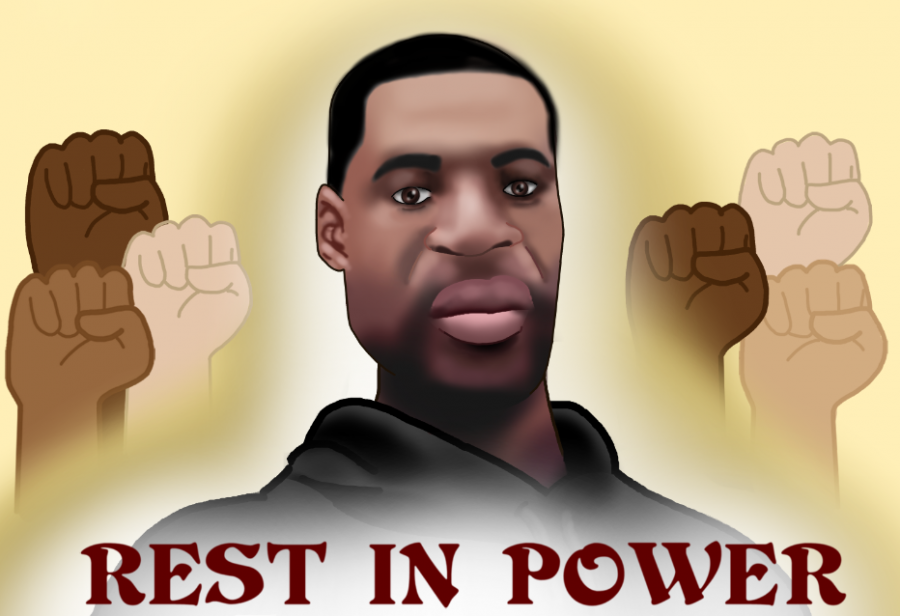Student organizations react to protests
BSU president suggests educating oneself, tips for protesting
WSU Black Student Union and the African Diaspora Association have used social media to promote educating oneself about racial issues as protests emerge in the nation.
June 4, 2020
As protesters filled the streets of many major cities this week, some WSU student organizations used social media as a platform to push for social change.
“Eight minutes and 46 seconds. That was how long it took for ex-officer, Derek Chauvin, to kneel on George Floyd’s neck and murder him,” said Sadarya Wright, WSU Black Student Union events coordinator.
Many people in America, Wright said, are filled with pain and frustration about the death of George Floyd.
Chauvin is currently facing charges of second-degree murder, according to a CNN article. The other three police officers involved are also facing charges of aiding and abetting second-degree murder.
“The Black community has contributed to the development of American society,” BSU President Mikayla Makle said. “Yet we are placed in systems that do not provide support in the manner of obtaining proper living standards.”
Bitanya Girmasision, WSU African Diaspora Association president, said all 50 states have participated in protesting and rioting since the death of Floyd. The protests have opened up an opportunity to continue learning from one another, she said.
“The civil unrest that has spread from state to state and country to country is a necessary step in order to achieve true equity,” BSU Secretary Yubi Lojewski said.
Makle said being an ally is someone with privilege or power who wants to learn and empathize with a marginalized group of people. An ally is someone who helps build up those communities without taking focus away from that group’s experience.
BSU compiled ways people can start being allies, which is an on-going process, she said.
Makle said the first step is to educate oneself about the issue. A Google Drive folder containing information on Black history, as well as Black activists, is available for public access.
“The best way to be a proper advocate is to educate yourself and educate others so that we are all socially and historically aware,” she said.
Signing petitions also help to show administration officials that people want social change, Makle said.
People can also donate to nonprofits aiding individuals who are incarcerated during protests, suffering from police brutality, or struggling to buy essential items, according to an anti-racism resource document.
Makle said she suggests people participate in protests, but to stay safe, people can cover their face and avoid taking photos of those unmasked. Publishing information publicly can be dangerous to some individuals.
She also recommends recording actions of police officers and other enforcement agencies, as well as writing down their badge number and name. Makle said this helps keep police accountable for their actions during protests.
“Not only has the Black community protested for our justice but alongside us has been our allies [who also] fight this fight against inhumane actions,” Wright said. “This is a fight that the Black community has been fighting for decades now, and we will continue to fight it until we receive our justice. People are sick and tired of seeing the same patterns that are taking away our brothers and sisters.”








